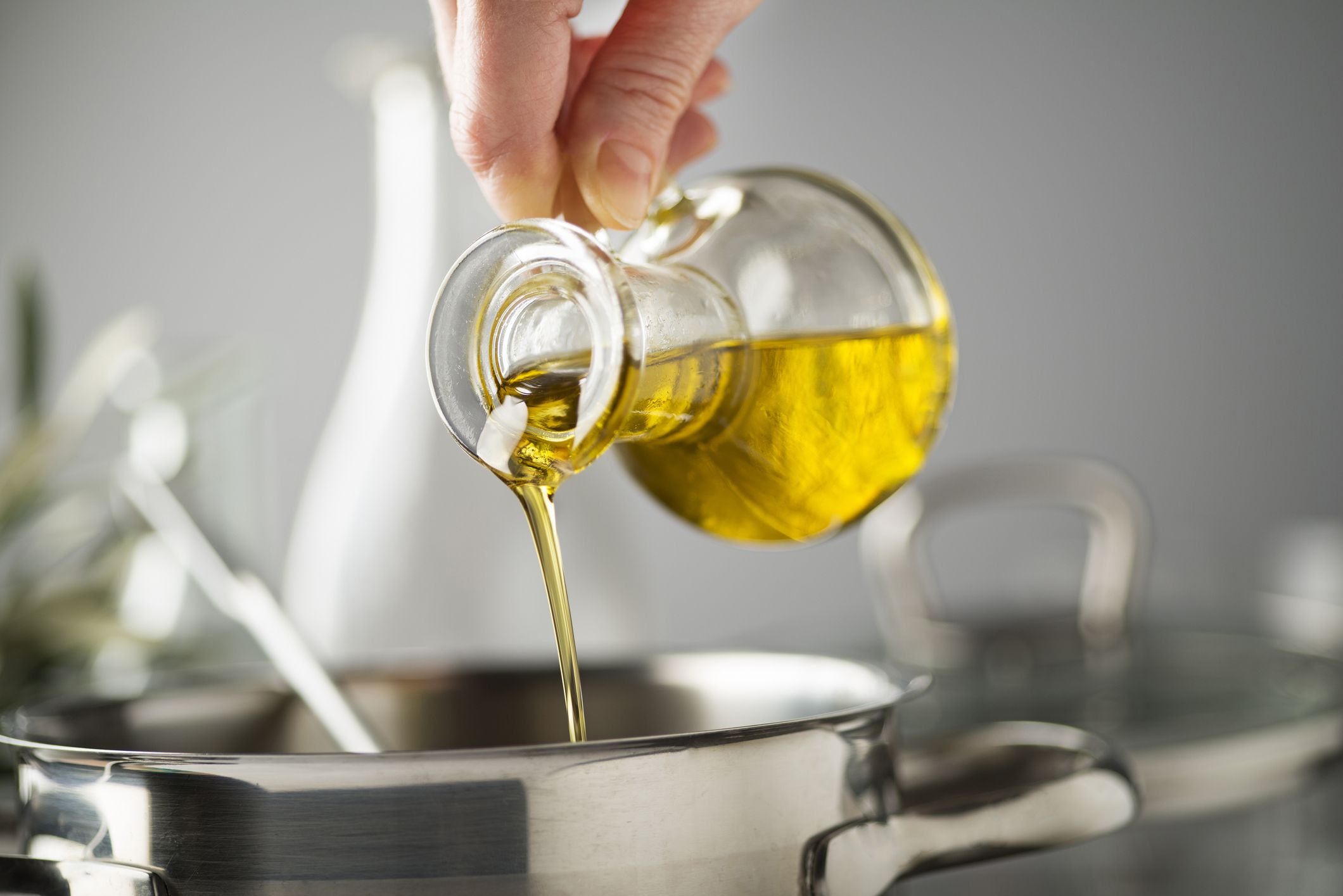To put it simply, cooking oil is a kitchen staple. People use cooking oils almost every day to prepare various dishes including vegetables, eggs, meat, and specific grain dishes, yet not all cooking oil is created equal.
Cooking oils tend to get their name from the seeds, nuts, plants, or fruit that they are extracted from, either via pressing, processing, or crushing, and are often characterized by a higher fat content.
But if you’re looking to make a healthier choice when it comes to the cooking oil that you use, you’ve come to the right place!
Smoke Point
The burning point, or “smoke point,” is a crucial consideration when deciding which oil to cook with. It’s defined as the temperature when the oil stops glistening and begins breaking down and also losing its integrity.
When it gets smokey, the oil may lose its nutritive value and even produce free radicals that could harm the body.
Although mixing cooking oil is not always the best choice, you can try mixing types of cooking oil like vegetable and canola oil to easily add flavor to a dish. These both have a smoke point of around 400 degrees Fahrenheit, which is great if you’re looking to fry food at higher heat levels.
Refined vs Unrefined
Each type of cooking oil adds necessary fats and calories to your diet.
The term ‘virgin’ or ‘extra virgin’ suggests that the oil has been minimally processed without the use of any chemicals, whereas ‘cold-pressed’ reveals that the oil has been extracted using no heat. As a result of this, enzymes and nutrients remain intact in the finalized product. Oils carrying these descriptions are known as unrefined oils.
On the other hand, refined oils are processed using chemicals. They might have a better tolerance for heat as the refining process removes enzymes, nutrients, and additional compounds that will likely burn.
However, they might also contain some residue of chemicals and are unlikely to retain natural enzymes or nutrients. Fortunately, these types of oils will benefit from a much longer shelf life and can easily fit into a balanced eating pattern!
Fat Composition
Each cooking oil comes with a unique flavor profile that can work to enhance just about any type of dish.
If you want to make your food taste like the oil that you are using, you’ll want to choose an oil with a stronger and bolder flavor. On the other hand, you should opt for a milder flavored cooking oil if you do not want it to overpower the food.
All cooking oils contain three types of fatty acids:
- Monounsaturated fat: a healthy fat that is found in nuts, seeds, and olive oil.
- Polyunsaturated fat: a relatively healthy fat often seen in vegetable oils, oily fish, seeds, and nuts.
- Saturated fat: an unhealthy fat that is found in coconut oil, butter, palm oil, and lard.
You must remember that each variation of cooking oil is categorized by which type of fatty acid is the most prominent!
So, What Is The Healthiest Cooking Oil?
Now that you know a little more about the types of oils and the fats in them, it’s time to learn what the healthiest cooking oils are.
Olive Oil
Known for its key role in the Mediterranean diet, olive oil consists of the juice from the olive tree fruit.
Extra virgin olive oil has a pretty low smoke point, making it a great choice for use over medium heat, or roasting below these sorts of temperatures. It’s also great to use for dressings thanks to its deep peppery flavor.
When it is consumed, olive oil has many incredible health benefits that range from reducing the risk of type 2 diabetes to protecting against heart disease. This is why it’s considered the healthiest cooking oil.
Make sure to use extra virgin olive oil as it is not refined and is of a much higher quality!
Avocado Oil
Derived from pressed avocados, this cooking oil has a milk flavor, a high smoke point, and one of the highest levels of monounsaturated fats in any cooking oil. It also has a low amount of polyunsaturated fats. Combined, these fats ensure avocado oil is a healthier choice – especially in terms of heart health!
Summary
This concludes this article about the healthiest cooking oil! Because of the way they are made, the fats they contain, and the health benefits they provide, extra virgin olive oil and avocado oil are often viewed as the healthiest types of cooking oil.

